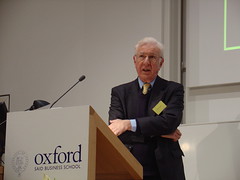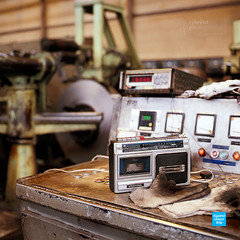
My biggest awakening of this year has been on the political aspects of food. I blogged earlier about Pollan and Safran Foer as some of the people kicking the discussion food going. Having now finished Safran Foer´s Eating Animals, it is becoming more and more obvious that we need to treat food more as a political issue. We´ve kind of let ourselves be swept away by nutritionists and health advocates.
Never have we Finns spent such a small part of our income on the things we eat. What we eat is making the planet and ourselves sick. We push stuff down our throats without a faintest clue of what it contains. Food comes increasingly from the Alepa shelf, not from the field. We´re like that awful Clinton policy on gays in the military: we pretend that there are no problems by not asking any questions. When something goes wrong, we say it is an individual mistake.
EU governments and the EU itself spend an insane amount of money on subsidising and promoting food. Just last year the Finnish government spent 257 000 euros on promoting diverse eating of pork (result here). Let me say that again: 257 000 euros on diverse ways of cooking pork. Honestly.
We have elections in 2011. I want the next government to take food seriously. I want better consumer policy, better ingredients and food produced closer to where I live. I want agriculture policy that takes climate change seriously. As a consumer and citizen I want to know where my food comes from, how its been grown and how ethical it is. And yes, I am willing to pay a bit more for the things on my plate.
I want better and more sustainable food. I want exciting food policy. I want beets of different sizes, big and dirty parsnips, uneven carrots and local bread in my grocery store. I want less of those soggy mozzarella-tomato paninis and more root vegetable delis. I want more publicity to proud farmers like Janne Länsipuro who gets excited over a pumpkin and a burdock. I want to take my nephew to a farm for a weekend to see how flour is made and where herbs come from.
But we also need actions by local and national government. Schools and lunch cafeterias are great places to teach people what good food tastes like. These are also excellent places to create sustainable ways of cooking for instance by diversifying the vegetarian meals.
People need incentives to make right choices. Food if anything can be a political issue that is truly participatory. Good food is a fun issue.
















